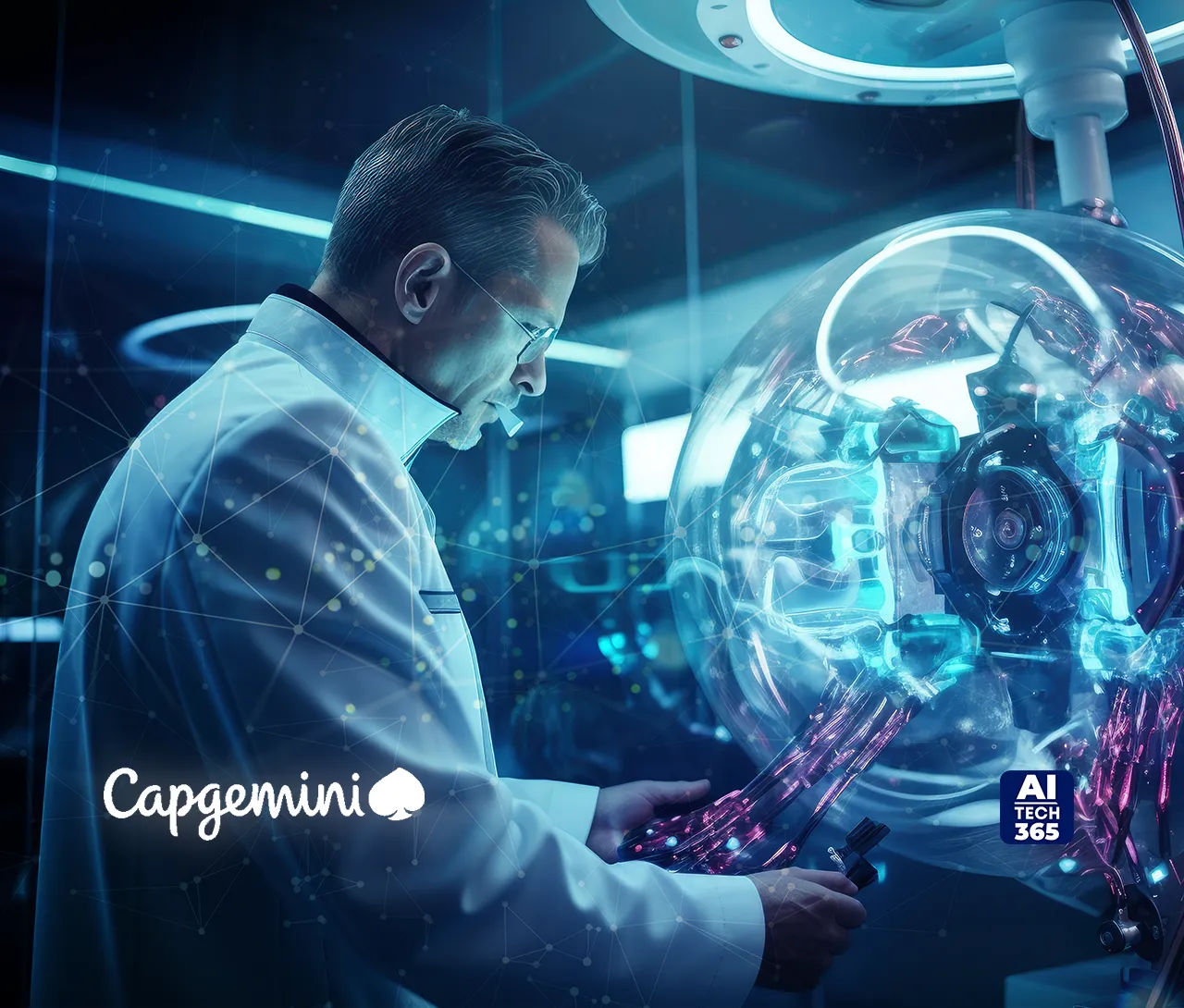Capgemini announced a new generative AI-driven methodology for protein engineering that uses a specialized protein large language model (pLLM) to predict the most effective protein variants. With a patent pending, this novel approach will help accelerate the advancement of the global bioeconomy and drive critical scientific breakthroughs across industries including healthcare, agriculture, and environmental science. By reducing the datapoints required to design protein sequences by over 99%, the new methodology harnesses the power of generative AI (gen AI) to drastically reduce the time and resources needed for research and development (R&D). Using this approach, Capgemini can help clients reduce the development cost of biosolutions and unlock business cases that were not previously viable.
Breakthrough solves the data bottleneck challenge
Advancements in engineering biology are expected to disrupt all industries, with half of business leaders predicting this transformation will happen within the next five years. However, data can be a critical bottleneck in research timelines. This new methodology makes scientific breakthroughs possible with significantly smaller data sets, enabling organizations to innovate even in resource-constrained environments. Using this novel approach, Capgemini is exceptionally positioned to help clients find and develop innovative solutions to global challenges such as disease, food security, and climate concerns.
Also Read: myTomorrows Launches AI Platform for Precision Trials
The methodology was created in the bespoke gen AI-driven biotechnology lab of Cambridge Consultants, the deep tech powerhouse of the Capgemini Group. The methodology was applied to several critical use cases to demonstrate how it could drive a step-change in innovation.
Examples that can be readily translated to other applications include:
- 60% increase in plastic degradation efficiency: Capgemini’s gen AI-driven approach enhanced the cutinase enzyme, increasing its ability to break down PET plastic by 60%. This advancement is one example of how protein engineering can create novel, highly efficient and cost-effective solutions to tackle global plastic waste. By making it easier to degrade plastic, this breakthrough can support sustainability objectives and help lower operational costs associated with waste management.
- Reduced experimentation for faster innovation: Using gen AI predictions, Capgemini reduced the number of experiments needed to identify an improved variant of the commonly cited Green Fluorescent Protein benchmark, from thousands to just 43 data points, achieving a brightness level seven times greater than that of the natural jellyfish protein. This significantly cuts down on the time and resources typically required for experimental testing, enabling quicker deployment across a range of fields, from accelerating drug discovery and enhancing diagnostic tools to advancing bioengineering applications.
“Capgemini’s proprietary generative AI-driven approach means we are uniquely placed to enable clients to significantly accelerate their bio-journey in previously untapped areas and, crucially, contribute to helping solve many of humanity’s most pressing challenges,” said Roshan Gya, CEO of Capgemini Invent and member of the Group Executive Board. “Our new methodology is faster, more cost-effective, and opens the door to new opportunities for clients to develop innovative bio-based solutions. The Capgemini Group delivers end-to-end engineering biology and scale-up capabilities so that our clients can derive significant business value and develop proprietary IP, moving away from traditional carbon-based approaches and fueling growth in the bioeconomy.”
Prof. Stephen Wallace, Professor of Chemical Biotechnology at the University of Edinburgh, stated: “Capgemini’s generative AI-driven approach represents a significant leap in protein engineering. By drastically reducing data requirements, Capgemini has fundamentally transformed the innovation timeline in bioengineering. This breakthrough reflects a clear vision for the future of engineering biology, leveraging the design and engineering of new biocatalysts to enable more sustainable and scalable industrial processes. With its expertise and adaptability, Capgemini is well-positioned to drive technological advances in this exciting and rapidly evolving interdisciplinary field.”
Source: Globenewswire

